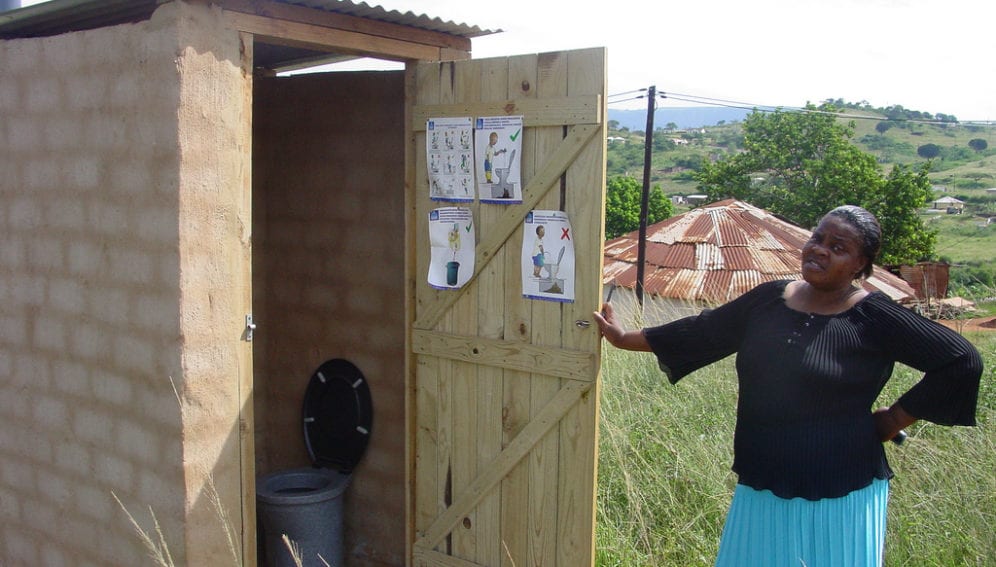By: Nick Kennedy
Send to a friend
The details you provide on this page will not be used to send unsolicited email, and will not be sold to a 3rd party. See privacy policy.
Bill and Melinda Gates’s competition to produce a high-tech toilet for the developing world has been questioned by toilet experts.
An environmental engineer and an NGO worker have criticised the Bill & Melinda Gates Foundation for funding the development of advanced toilets that would be too expensive to provide sanitation for the 2.5 billion people without access to a toilet.
The foundation should instead focus on cheaper technologies and ways to get toilets into communities in a sustainable way, they say.
The Gates Foundation launched the Reinvent the Toilet Challenge in 2011 to inspire researchers to design toilets that work without water or electricity, and transform waste into energy and water. In August 2012, the California Institute of Technology, United States, was awarded the first prize of US$100,000 for designing a solar-powered toilet that generates hydrogen and electricity.
This year, the Reinvent the Toilet Challenge was also launched in India and China. The foundation continues to provide grants through the challenge and has so far funded 16 research institutions worldwide.
But toilet experts say the communities that desperately need sanitation will be unable to afford the advanced technology the initiative promotes.
“The Gates Foundation should be investing more in low-tech rather than high-tech toilets,” says Jason Kass, an environmental engineer who founded Toilets for People, a business that aims to help developing nations by making low-cost toilets. “But high-tech solutions and research projects are sexier and more eye-catching, so they are more interesting for universities. Unfortunately, that’s driving a lot of the Gates Foundation’s money. But that’s not how they are going to solve the sanitation problem.
“The Gates Foundation should have a low-tech toilet challenge without the restrictions. By all the rules of the existing Reinvent the Toilet Challenge, low-tech, low-cost ideas will never see the light of day.”
Simpler solutions do exist. Toilets for People has designed an indoor, composting toilet that is waterless, easy to repair and costs less than US$200.
“By all the rules of the existing Reinvent the Toilet Challenge, low-tech, low-cost ideas will never see the light of day.”
Jason Kass, Toilets for People
Swedish firm Peepoople makes a single-use, biodegradable bag that costs around two US cents. After use, the urea contained in the Peepoo bag inactivates pathogens in the contents.
Sasha Kramer, co-founder of the NGO Sustainable Organic Integrated Livelihoods, which provides sanitation in Haiti, agrees that the focus should be on simpler, more robust technologies.
But she adds: “Building the toilet is the easy part. The most challenging step is making it work on the ground. The true challenge is not technology. It’s really an issue of access, social mobilisation and ongoing maintenance of the toilet.”
Kramer says the foundation needs to shift its funding strategy to ensure that locally based implementers have sufficient resources for the challenge’s second phase, which aims to scale-up the roll-out of new toilets in communities. This is far more important than the development of high-tech toilets, she says.
But Sebastien Tilmans, co-founder of Resource Sanitation, a Gates Foundation-funded research team that designs low-cost toilets for developing nations, says: “There are thousands of low-tech toilets, yet the sanitation crisis persists. What is much more critical is to develop products and services that truly appeal to users, and to foster new delivery systems and business models that will enable existing technologies to achieve scale and sustainable impact.”
And Brian Arbogast, director of the Water, Sanitation and Hygiene programme at the Gates Foundation, says: “Major innovations always entail taking risks and, as with any investments in innovation, we won’t know which of them will most change the world until the people who they are meant to help have had their say”.
See below for a video by Toilets for People about its composting toilet:














